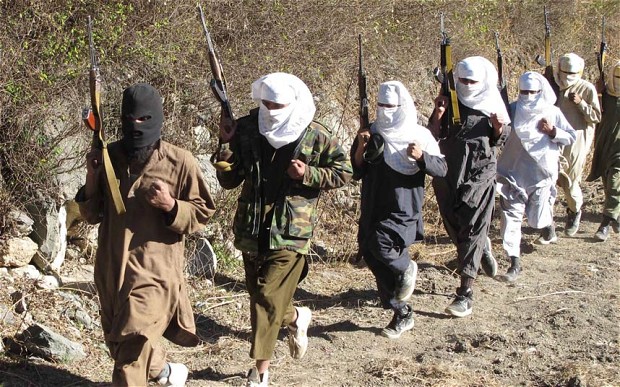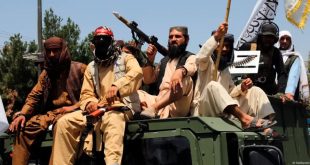Lashkar-e-Taiba (LeT), a group designated by both the U.S. and Pakistan as a terrorist organization, continues to mount attacks against Indian forces in the disputed Kashmir region. It operates under the guidance of Pakistan’s intelligence service, known as the ISI, as part of the ISI’s regional “proxy” strategy. However, LeT’s objectives may not be limited to regional activities, as the group has previously expressed a desire to carry out international attacks and has been tied to the 2010 attempted Times Square bombing. The Cipher Brief’s Bennett Seftel sat down with Marvin Weinbaum, director for Pakistan Studies at The Middle East Institute, to discuss the relationship between Pakistan and LeT, Pakistan’s broader proxy strategy, and how the U.S. should view the LeT threat.
TCB: What are some of the factors that gave rise to Lashkar-e-Taiba (LeT) as a movement?
Marvin Weinbaum: You can’t talk about LeT without seeing it in a broader context. It is a prime example of what has been Pakistan’s need to employ militant groups as proxies, where Pakistan, in an asymmetrical relationship with India, cannot engage its regular armed forces. In Afghanistan, Pakistan, under scrutiny of international actors, has long used organizations like LeT as enablers of favored forces in the country.
What also gives rise to a group such as LeT has been the failure of the Pakistan government to provide basic services at the local level. LeT, more than any other of the extremist groups in Pakistan, has built a social infrastructure – under the purported political wing Jamaat-ud-Dawah (JuD) – and provides a wide array of welfare services, such as running clinics and schools in Punjab Province and indirectly in Indian-held Kashmir. These activities have given LeT local standing, which it can use for recruitment and fundraising. Over time, it has allowed LeT to develop a popular support base that would make it difficult for the government to uproot, even should it be inclined to do so.
TCB: What are the group’s objectives?
Weinbaum: LeT is part of the jihadi movement that was initially formed in Afghanistan in 1989. But very soon following the Soviet withdrawal from the country, at the direction of Pakistan’s leading intelligent service, the ISI, shifted its focus of operation to Kashmir. Together with other jihadi groups, mainly Jaish-e-Mohammad, LeT has played a leading role in that insurgency through the infiltration of fighters and various forms of material support.
What the group seeks is a liberation of Muslims from the heavy hand of Indian rule in Kashmir and the territory’s ultimate incorporation into Pakistan. More broadly, LeT’s involvement in attacks mounted elsewhere in India indicate an agenda that seeks on the behalf of Indian Muslims the weakening and dismemberment of what is seen as an oppressive Hindu state.
TCB: How has India dealt with this threat?
Weinbaum: India sees LeT as the poster boy of Pakistan’s campaign to export terrorism. Two of the most prominent attacks on the country, against the India parliament in 2002 and the raid in Mumbai in 2008, are directly linked to LeT. The failure of Pakistan to bring to justice those identified as involved in the Mumbai attack continues to be an impediment to any improvement in relations between the two countries.
Pakistan claims that it is willing to cooperate in investigating Mumbai. Early this year, authorities arrested Hafiz Saeed, the head of JuD who is widely believed to still be directing LeT. (LeT has been on the Pakistani list of terrorist groups since 2002.) He has been held under house arrest since January 2017. But prior to that, Saeed was, for a long period, free to move around the country delivering incendiary speeches that would normally have landed anybody else in the courts and prison.
For many, the immunity that Saeed has enjoyed is taken as evidence of his deep ties with military intelligence. India sees this is as confirmation that Pakistan is not serious in its promises to address terrorism. It’s worth noting that in the event that Pakistan was to become politically destabilized or threatened with attack by India, the legitimacy and influence of LeT and similar groups would soar.
TCB: What is the level of cooperation between LeT and other terrorist groups in the region, namely the Haqqani network and the Afghan Taliban.
Weinbaum: There are links between them that sometimes make it very difficult to distinguish among the various extremist groups in Pakistan that are engaged in terrorism. They have in common converging ideologies and objectives, even while their priorities and immediate goals may differ. All seek to transform Pakistan’s constitutional democratic government into what they would consider a government that is fully compliant with sharia law. Not infrequently, they cooperate operationally and have been know to share both fighters and intelligence. LeT is thought to have facilitated the actions of the Haqqani network and both the Afghan and Pakistani Taliban in Afghanistan.
TCB: How has Pakistan and its intelligence service, the ISI, implemented its “proxy” strategy by using groups such as LeT and the Haqqani network? Are these groups primarily used when Pakistan does not want to use its army to conduct certain operations?
Weinbaum: These groups are instruments of the ISI and are seen as assets in both Kashmir and Afghanistan. They provide plausible deniability. Importantly, LeT is an example of a jihadi organization that even while having a close relationship with Pakistan’s Tehrik e-Taliban Pakistan (TTP), has never joined TTP attacks against the Pakistani state. This reciprocates the ISI’s refusal to bow to domestic and foreign pressures to come down hard on LeT’s military and political wings.
At this point in time, considering the growing tensions in Kashmir, the ISI has every reason to hold close a jihadi group such as LeT. Pakistan also cannot give up on its proxies in an Afghanistan that is seen as very possibly fracturing. Should the situation further deteriorate, Pakistan believes that it will need friendly Afghan Pashtun forces and trusted jihadi groups to ensure that Pakistan’s interests are secured across the border. These groups, by providing insurance, seem more relevant than ever.
TCB: Is the threat from LeT getting enough attention in the U.S.? Should this threat be higher on the U.S. radar?
Weinbaum: The U.S. officially designated LeT as a terrorist group in 2001, which means it qualifies as a group that has directly targeted Americans. LeT has attracted particular attention not only for its actions in South Asia, but because of its believed connections with terrorist organizations elsewhere. LeT has in the past proclaimed its global ambitions. That it may be more than rhetoric is indicated by the link found between the LeT and the would-be Times Square bomber in 2010. Of course, at this point at least, we cannot put LeT in the category of groups such as ISIS or al Qaeda that U.S. intelligence sources consider to be actively seeking to launch attacks against the American homeland. Nevertheless, LeT remains a group to be watched.
 Afghanistan Times
Afghanistan Times




